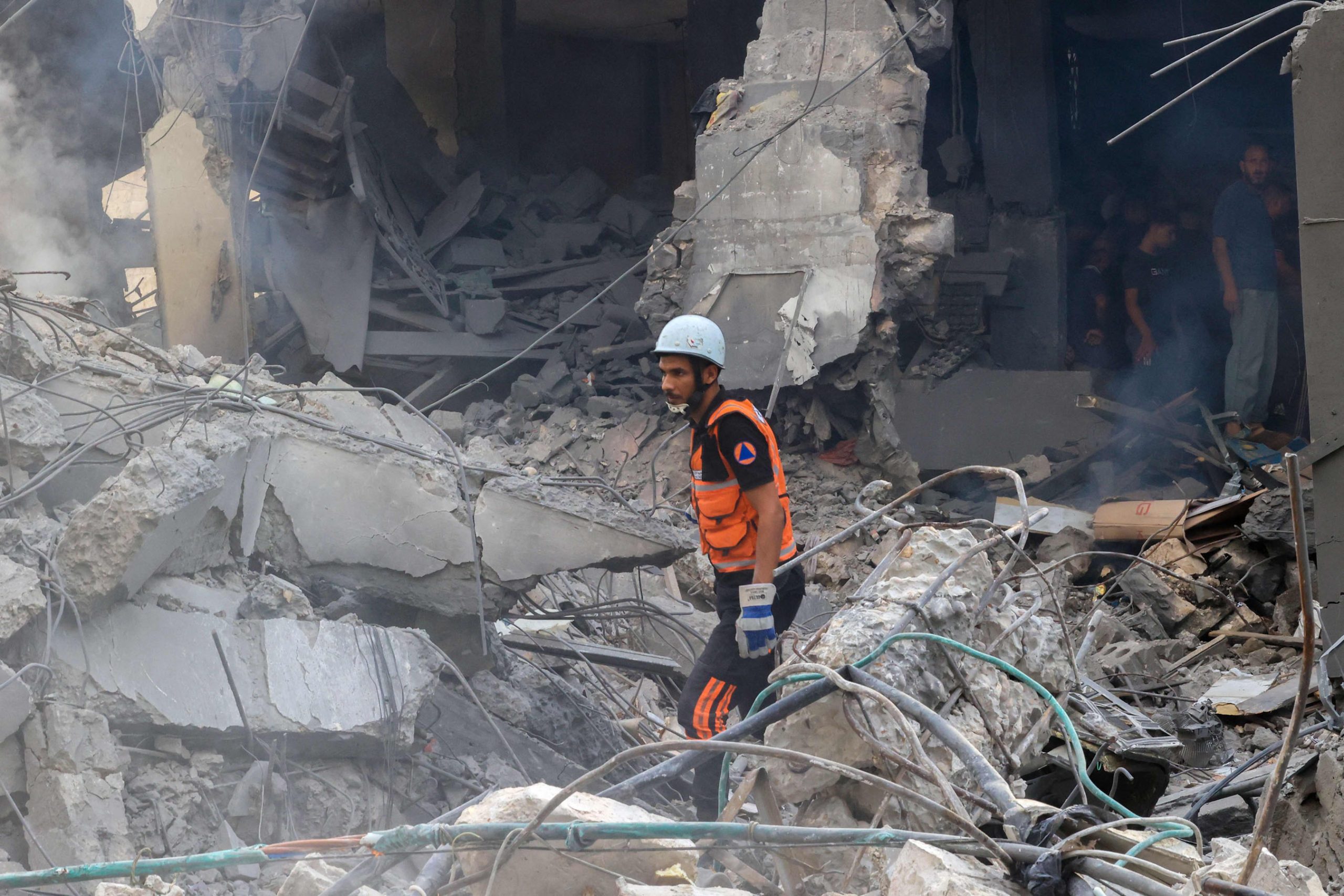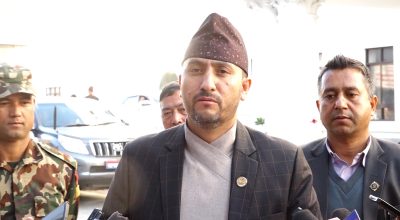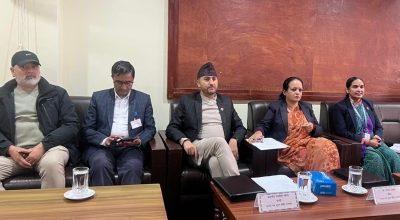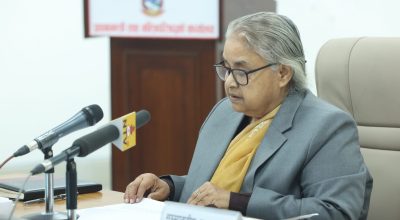
Israel-Palestine conflict has again raised global attention, and a massive humanitarian crisis has been seen due to the eruption of the violent war recently. Though the Israel-Palestine conflict is not a new phenomenon, because of the long-protracted instability in that region, there has always been fear, confrontation, and distrust among the major conflicting parties. Certainly, there have been many multiple efforts to resolve this protracted conflict, but a tangible solution has not been found yet. The recent Hamas attack on Israel has further complicated the situation and ignored the peaceful ways of resolution. Similarly, the continuous violent response of Israel is not also a proper response to it. The international community needs to give press to both parties to come to the table and find a peaceful solution through a meaningful dialogue.
The Israel-Palestine conflict is a deeply entrenched and complex issue with a long history of grievances on both sides. However, achieving a peaceful resolution is not impossible, and it requires the commitment of both parties and the support of the international community. One approach could be a two-state solution, where Israel and Palestine coexist side by side as independent, sovereign states. Negotiations should focus on clearly defined borders, with mutually agreed land swaps to accommodate existing settlements, and the creation of a shared capital in Jerusalem, ensuring access to holy sites for all. This approach would also involve addressing the rights of refugees and a comprehensive security agreement to ensure the safety of both nations.
The situation has gained international attention since the newest round of the Israeli-Palestinian conflict began. Humanity’s moral fiber is being called into doubt by the widespread civilian deaths and the deteriorating humanitarian situations. As of right now, there are still casualties and fighting going on, which is having an affect on the peace and stability of the region.
In order to generate prospects for peace and avert an even bigger humanitarian tragedy, the international community typically hopes that the parties to the conflict will cease fire and resume negotiations as soon as possible. Beyond self-defense, military action should not be used to punish civilians collectively. International humanitarian law establishes a red line for the protection of people in armed situations, and the use of force without cause is illegal.
In order to ensure the safety of civilians and detainees, establish humanitarian corridors, and avert a bigger humanitarian catastrophe, the parties to the war should abide by international law and international humanitarian law. The history of the Israeli-Palestinian conflict has repeatedly shown that military action is not the solution to this issue, and that using force in response to violence will only create a vicious circle.
The international community ought to actively support peace negotiations and take steps to oppose any actions that injure civilians. The United Nations, and particularly the UN Security Council, must accept responsibility, concentrate on humanitarian issues, and make it plain that action must be taken to put an end to bloodshed, secure civilians’ safety, and forge a legally binding global agreement.
To build trust and foster cooperation, confidence-building measures are crucial. Both Israel and Palestine should commit to a sustained ceasefire, gradually easing restrictions on movement and trade, and working together to improve the living conditions of Palestinians in the West Bank and Gaza Strip. International observers and peacekeeping forces could be deployed to monitor and enforce agreements, providing an additional layer of security and accountability. Simultaneously, grassroots initiatives that promote people-to-people interactions and dialogue between Israelis and Palestinians, such as joint economic ventures and educational exchanges, can help build mutual understanding and tolerance.
It will be hard to stop more breaches of international humanitarian law as long as the conflict goes on. Any humanitarian assistance will only be a drop in the ocean unless there is a complete truce. The international community is painfully reminded by the ongoing Palestinian-Israeli conflict that the Palestinian issue has always been at the center of the Middle East problem. It is improbable that the Middle East would see long-lasting peace without a fair and just solution to the Palestinian problem.
Long-standing and complicated, the Palestinian-Israeli conflict is entwined with conflicts over geography, race, and religion. The Palestinian people’s rights to existence, statehood, and return have been consistently denied, which is a major contributing factor to the difficulties of finding a solution to the conflict. Both Israel and Palestine are entitled to become independent states. Implementing the two-state solution and advocating for the creation of a schedule and roadmap for the restoration of the Palestinian nation’s legal rights constitute the core strategies for resolving the Palestinian issue.
The international world recognizes the two-state solution, which calls for the Palestinians to have their own sovereign state along the 1967 boundaries, with East Jerusalem serving as its capital.
On the basis of “land for peace,” pertinent UN resolutions, and the two-state solution, the international community is generally in favor of the two sides resuming talks. The two-state solution is still the sole consensus-based method for settling the conflict, despite the implementation disparities between the two sides.
With the start of the present war, the world community has once again realized how crucial it is to really implement the two-state solution in order to resolve the Palestinian-Israeli problem and establish true peace in the Middle East. There are those who argue that any solution that does not follow the two-state approach is not workable, and there are others who think there is no other way to solve the problem. Some voices believed that creating an independent State of Palestine and putting pertinent UN Security Council decisions into effect would be necessary for a fair and long-lasting solution to the Palestinian problem.
All nations that value peace and justice have a shared responsibility to behave responsibly for both lives and peace. Major nations, in particular, must uphold objectivity and fairness in the face of ongoing conflicts and growing humanitarian disasters. They must also actively support an expeditious ceasefire and cessation of hostilities and explicitly call for the implementation of the two-state solution in order to eradicate the breeding ground for violence and contribute positively to the maintenance of peace and stability in the Middle East.
Ultimately, regional and international support is indispensable for a peaceful resolution. The United Nations, the European Union, and other stakeholders should play a more active role in facilitating negotiations and supporting both parties in their pursuit of peace. Economic incentives and assistance can be provided to bolster the Palestinian economy and infrastructure, while security guarantees can help address Israel’s concerns. The international community should emphasize that a peaceful resolution is in the best interest of all parties involved, promoting stability and prosperity in the region. It’s important to recognize that the path to peace in the Israel-Palestine conflict is challenging, but with determination, diplomacy, and a commitment to justice and coexistence, a lasting and peaceful solution is achievable.
















